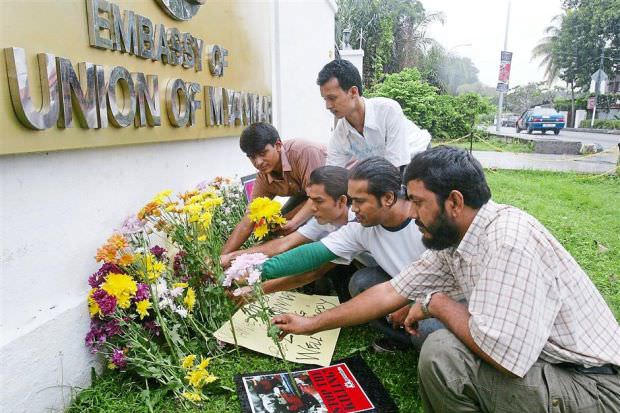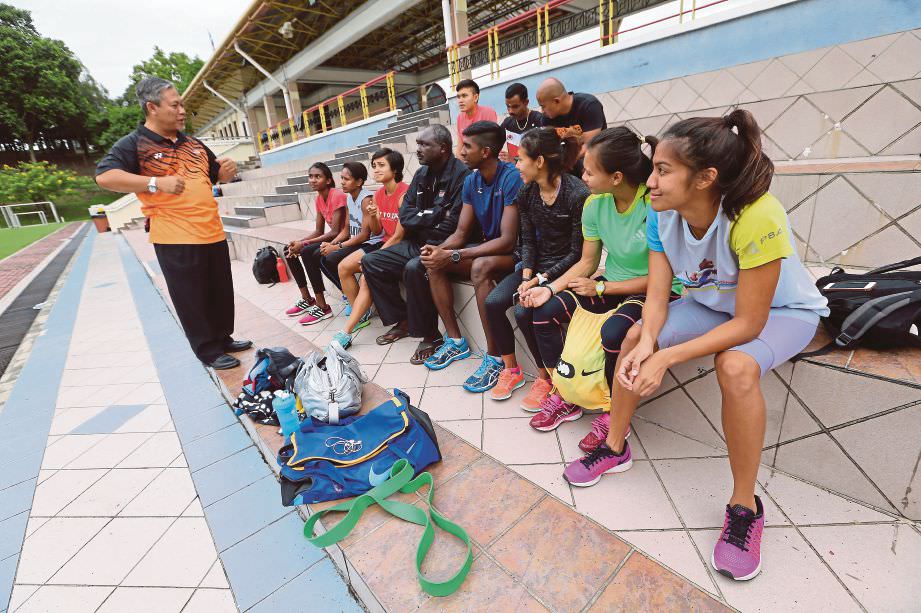Myanmar: After Husaina’s 20-year-old son boarded a boat to escape poverty and discrimination in Myanmar’s Rakhine State, she heard nothing from him for seven months.
Then, in a shocking phone call, she was told the young Rohingya Muslim was in the hands of people smugglers in Thailand, and had fallen severely ill.
The only way for him to be released was to somehow find the money to pay a ransom.
“The man said: ‘If you don’t pay money, he will die … I was so upset. How did he get into the hands of the brokers? How did he become so ill?” she said, sitting in her dark and crumbling one-room temporary home in Thet Kel Pyin displacement camp, a few kilometres from the Rakhine state capital of Sittwe.
They found an employer in Malaysia willing to pay about US$1,600 (RM6,880) in exchange for Mamed Rohim’s labour. That was over a year ago and Rohim is still working to repay the debt.
He only manages to send home about US$50 (RM215) every two or three months, which the family uses to repay their own debts – run up since they fled communal violence in Sittwe for the camp.
Now barred from returning home, the family – seven other children and an asthmatic husband – is struggling to make ends meet. But Husaina says Rohim’s plight continues to haunt her.
“Even though I want to send other children on the boat so they could find jobs, I’m really worried about the brokers so I dare not,” she told Myanmar Now, an independent news service supported by the Thomson Reuters Foundation.
Waves of Rohingya Muslims have fled sectarian violence and apartheid-like conditions in Myanmar in recent years, many of them swept up in trafficking rings, some of which hold men like Rohim for ransom, making threats to their impoverished families that their loved ones will be killed.
But human rights groups say there has been a dramatic drop in the number of Rohingya leaving Myanmar this year. They attribute this to a crackdown on human trafficking by countries such as Thailand and Malaysia and political changes at home following the National League for Democracy’s landslide election win in November.
The Myanmar government does not recognise the 1.1 million Rohingya as citizens and has referred to them as ‘Bengalis’, to suggest they are illegal immigrants from Bangladesh. The group cannot travel freely within Buddhist-majority Myanmar and faces restrictions on access to education and healthcare.
Experiences such as Rohim’s are common among the Rohingya, confined to the squalid displacement camps outside Sittwe. The stories are shared, making many fearful of the multi-day journey.
“There have been very few boats since the sailing season started in October and none at all this year, 2016,” said Chris Lewa of the Arakan Project, a Rohingya advocacy group which tracks migration.
“The key reason is that smugglers have no option for disembarkation due to Thailand being virtually closed. Another is the situation in Malaysia (where) there are regular immigration raids.”
Matthew Smith, executive director of Thailand-based human rights group Fortify Rights, agrees numbers leaving Rakhine have dropped, even though it is difficult to quantify.
Despite continued government restrictions, some Rohingya have not left because they are holding out hope for the new government led by Aung San Suu Kyi’s NLD, said Smith of Fortify Rights.
“Many Muslims in Rakhine State tell us they hope Daw Suu will usher in a better day for them. Anything, they say, will be better than the past,” he said.
This hope is held despite that the Rakhine State parliament is dominated by the Buddhist nationalist Arakan National Party (ANP). — Reuters/thestar







